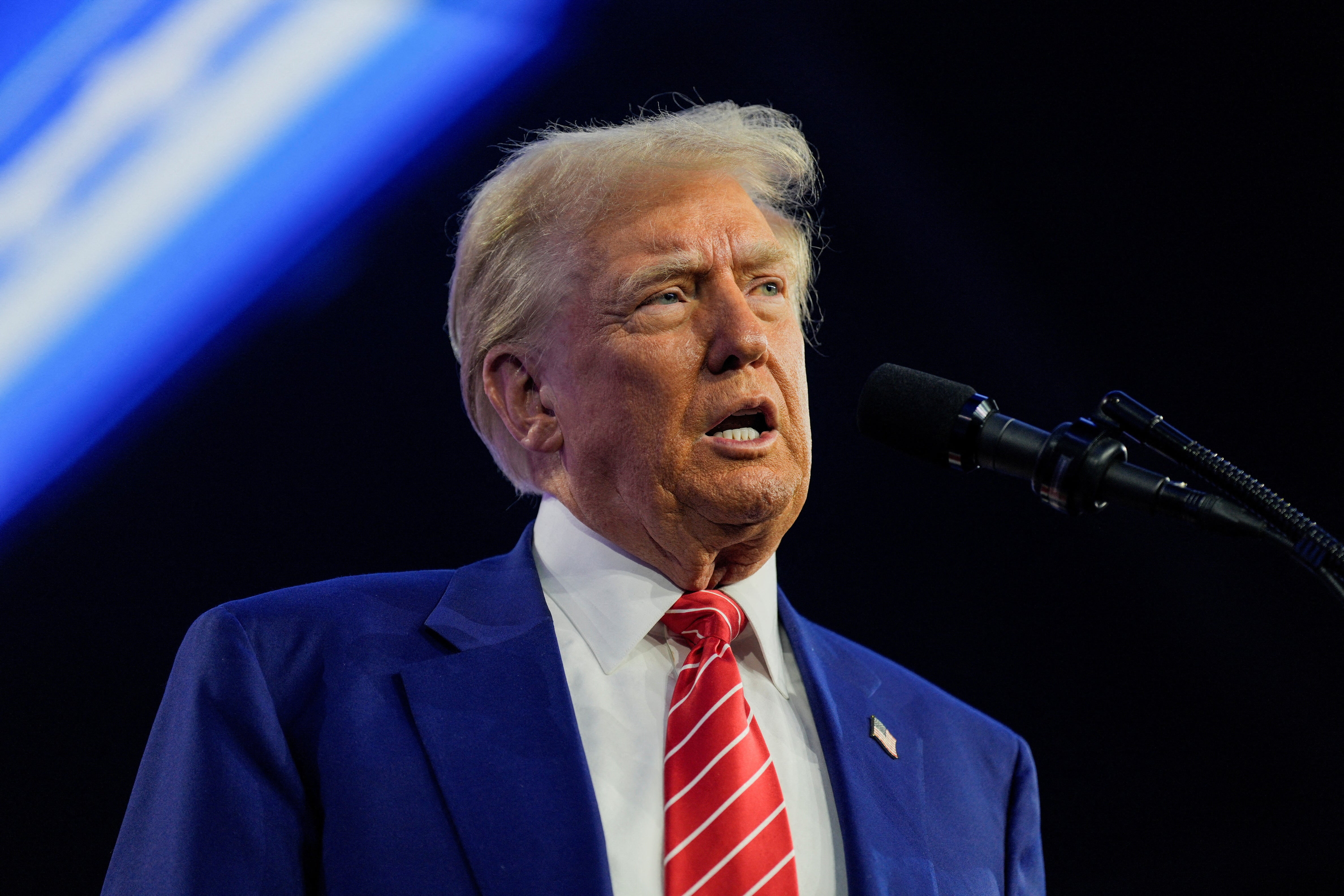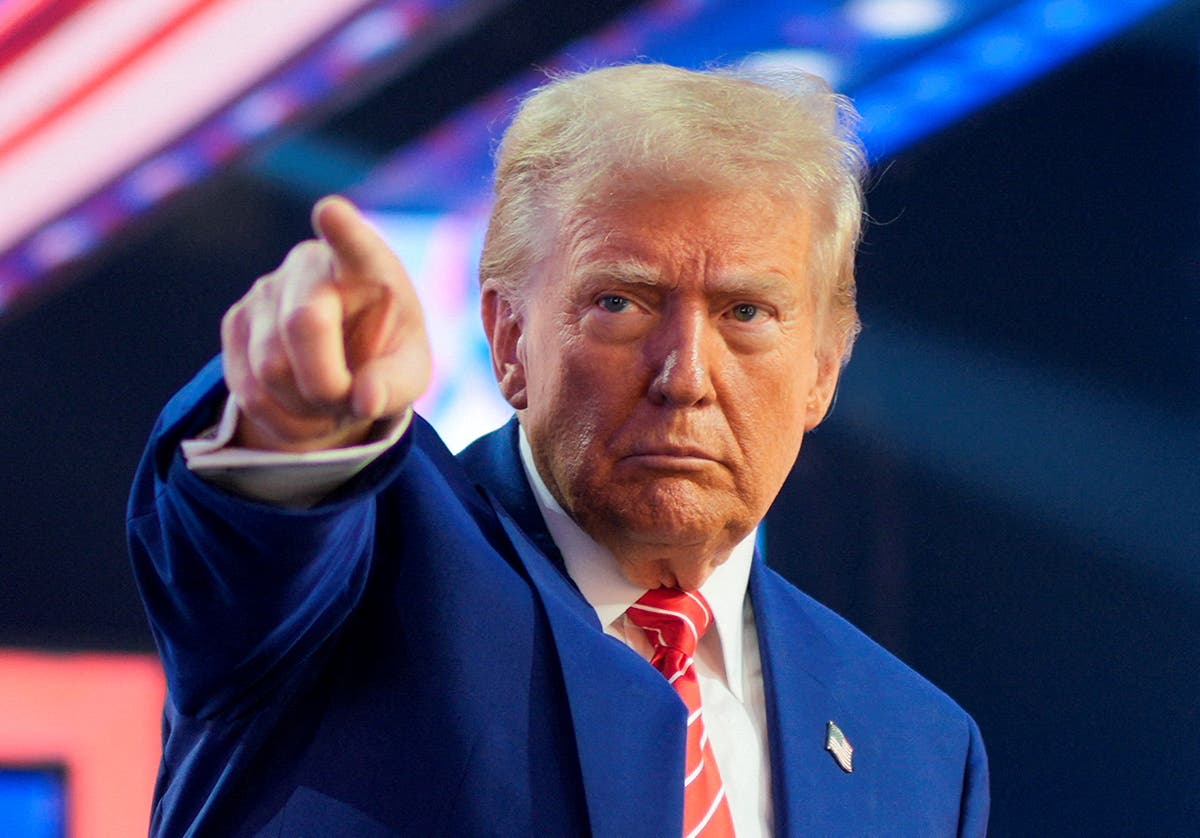Donald Trump claimed full credit on Wednesday for the “EPIC” ceasefire deal between Israel and Hamas.
The president-elect argued in a Truth Social post that the agreement, expected to be formally confirmed later Wednesday, “could have only happened as a result of our Historic Victory in November.”
“It signaled to the entire World that my Administration would seek Peace and negotiate deals to ensure the safety of all Americans, and our Allies,” Trump continued. “I am thrilled American and Israeli hostages will be returning home to be reunited with their families and loved ones.”
The agreement came after Trump’s incoming Middle East envoy Steve Witkoff met with Israeli Prime Minister Benjamin Netanyahu over the weekend.
Trump thanked Witkoff in his post and vowed that going forward, the U.S. will ensure “Gaza NEVER again becomes a terrorist safe haven,” and that Israel keeps expanding the Abraham Accords normalization agreements with its neighbors established during the first Trump administration.
The outgoing Biden administration described working tightly with the Trump team to seal the deal.

Earlier this week, White House National Security Adviser Jake Sullivan told reporters the administration had “coordinated very closely” with the incoming Trump team to “present a united message to all the parties, which says it is in the American national security interest — regardless of party, regardless of outgoing or incoming administration” to “get this deal done as fast as possible.”
The high-stakes negotations during a presidential transition called to mind the 1980 election, after which Ronald Reagan succeeded Jimmy Carter during the Iran hostage crisis. Sullivan emphasized that the ceasefire breakthrough was unrelated to the recent U.S. presidential contest.
“These are not partisan issues; these are American national security issues,” Sullivan said.
The ceasefire deal, those close to negotiations told The Independent, will involve a phased series of steps, with Hamas releasing 33 of the roughly 100 hostages inside Gaza during an initial 42-day period.
It is still unclear if the agreement will permanently end the conflict in Gaza, which has killed more than 1,000 Israelis and 46,000 Palestinians since Hamas’s 2023 invasion of Israel and has been declared a genocide by some international observers.
Questions remain over whether Israeli troops will fully withdraw from Gaza, as well as whether Hamas will remain in power there in the future, a scenario Israel has rejected thus far.
On the campaign trail, Trump took a variety of stances on the 15-month conflict.
He positioned himself as a savior for Israel, claiming during a September speech to the Republican Jewish Coalition in Las Vegas that the country would be “gone” if Kamala Harris were elected president.
Trump also frequently demonized Jews who maintained their traditional support for Democrats, claiming they needed to have their “head examined.”
At the same time, Trump agreed with protesters accusing Biden of being “Genocide Joe” for his continued support of Israel despite atrocities in Gaza, echoing a common sentiment on the left.
And the Republican had criticisms for Netanyahu too, telling a radio host in April that the war needed to end.
“You’ve got to get it over with, and you have to get back to normalcy,” Trump said in an interview with The Hugh Hewitt Show.
During his first term in office, Trump backed multiple steps seen as favoring Netanyahu’s priorities in the larger Israel-Palestine conflict, including moving the U.S. embassy to Jerusalem and recognizing contested Israeli sovereignty claims over the Golan Heights.
Israeli settlement building in the occupied West Bank, considered illegal by the International Court of Justice, also boomed during the first Trump administration.
Jewish settlers in the West Bank celebrated Trump’s victory in November.
Israeli Finance Minister Bezalel Smotrich, himself a settler, has said he will make sure the Israeli government lobbies Trump on extending Israeli sovereignty over the West Bank.

